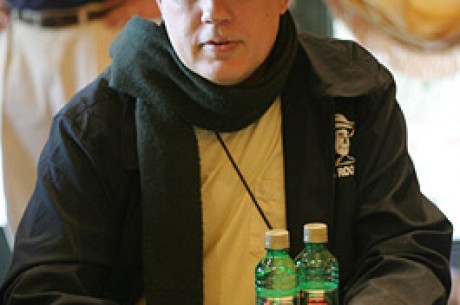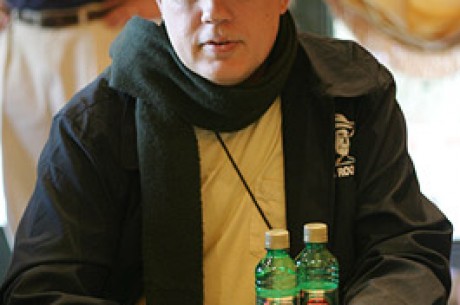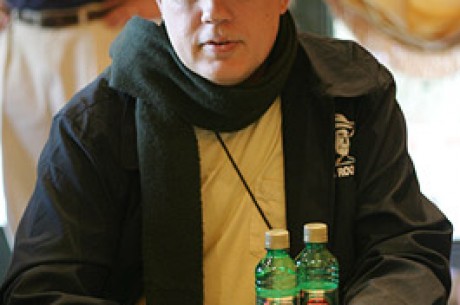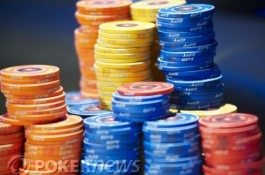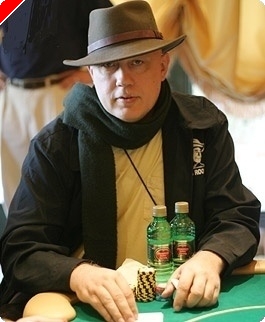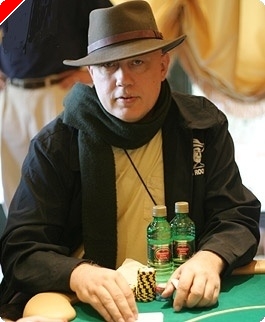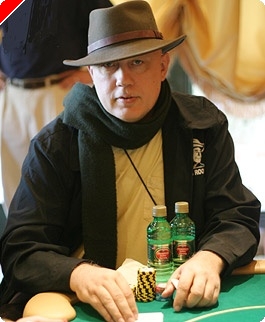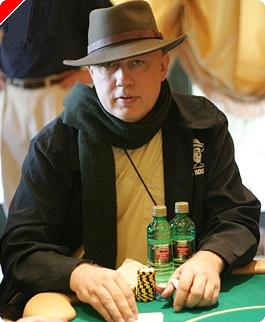Inside the Poker Tour �C 63 �C More on Vos
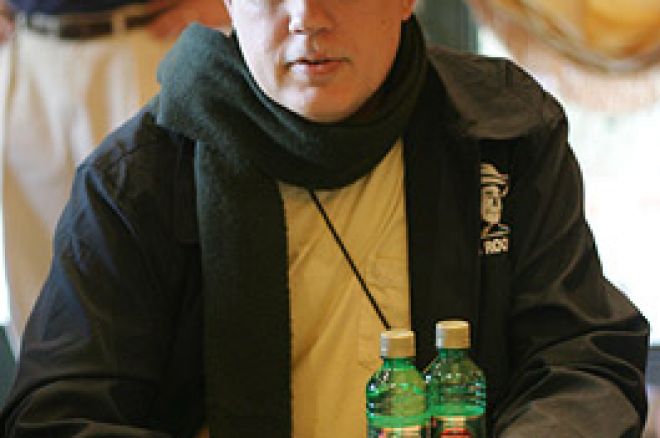
Sometimes it does not matter what you say - it is going to offend someone. Let me make an effort to set the record straight. In my last column, I analyzed a hand played by Mark Vos and Jesus Ferguson. I know that Vos is a very good player and one of the best of the 'young guns'. I was not trying in any way to be critical of his play and decisions in my last column - what I was doing was suggesting that there is more than one way to look at every hand and every situation, this effort was crippled by a lack of important information and tempered by my observation of "you have to be there". In retrospect perhaps it was not the best of examples, but it came to me in an email and even without adequate information I found the alleged holdings interesting. I believe Mark held KhJh as he said he did and that Chris Ferguson held AA as he told Mark after the hand and me, some months later.
Additionally Mark believes that his bets [in the hand with Chris Ferguson] were of an adequate size to get the correct information. Regarding that I think it dovetails back into "you have to be there". My suggestion was that one should either play the hand smaller or larger and that if you stayed in the middle ground that you were a lot more vulnerable without knowing for sure where you stood. Now while I still believe that is true, and would have played it small or large depending on my feelings and reads, regardless of what we now know to be the hands, perhaps it is a question of style - and if Mark, who was in the chair, got enough information to make the right decision at the time - then there is not a lot more to say.
Of course Jesus also believed that he held closer to 100,000 in chips and as time goes on our chance of ever knowing the actual match-up of stack sizes becomes more remote, even though I consider it critical, as without it we do not know the real math of the possible decisions.
As many regular readers know I believe that math drives many decisions that often seem more exotic and nothing illustrates this better than a hand that Mark Vos played with Nam Le when they were heads-up at the 2006 WSOP with Mark holding K8 of spades and 1.2 million in chips and Nam Le holding Qd Jh with 2.6 million plus in chips, and Nam raising it to 70,000 from the button and Mark calling. It came QsTs6s and Nam bet 80,000 and Mark check-raised to 190,000 with Nam calling. The turn is the Ad with Mark betting 265,000 and Nam calling, the river brought the 5s and Mark bet 300,000 out and Nam went all-in. At this point, after a short walk, Mark says "you know what? I don't actually think I can fold here? 100��200��good tournament [x], I call." From here Mark became the chip leader and went on to victory.
Let me go to another hand which Mark Vos played at the 2006 World Series of Poker at the same final table. This hand I saw on ESPN without sound in a poker room only once so I could have some of the details wrong (back into trouble I go). There were four players left and Mark limped with J6off-suit in the little blind in an unopened pot (completing it to 30,000) and a person who had Mark covered raised 90,000 more from the big blind with A3 suited and Mark went all-in very quickly (we also don't know if television edited actions) for a lot of chips, and the A3 now called (very quickly), and it came K66 and Mark went on to win the tournament and the A3 (Dr. Thomas Hunt III) was crippled and soon out in 4th place.
Now I find this hand very interesting and superficially one can think that Mark played it hyper-aggressively, but if you were to think his read is good he made the right plays. In all cases I would argue that the big blind made two serious mistakes in his play of this hand. The first is that he made a non-committing raise from the big blind with an okay or good, but not great, hand��one with which he wanted to see a flop and yet he opened the door to getting shut out. Now he compounds this smaller error with a call that is unlikely to be a 3 to 2 favorite in an ideal world, but is much more likely to be a large underdog to the holdings that Mark will likely show him (a pair or a bigger ace). If the raise was exploratory and positional he should give it up when he is facing a large re-raise no matter how he perceives Mark's game.
The point here is that one needs a much stronger hand to call with in no-limit holdem than one needs to raise with. Did the big blind consider his actions or the consequences? It is hard to say for sure, again I was not there. Perhaps he had seen enough, perhaps this scenario had played out many times before, but no matter what has happened historically he is risking his tournament life with a mediocre holding. In no-limit you not only need a much better hand to call with than to raise with you have to realize that all the hours that went into getting here are discarded with one or two poorly played hands. Furthermore he is throwing away the opportunity to not only win a coveted gold bracelet but a chance to move up dramatically in results and money won, all without raising or calling. I am not advocating passive play at this point, but I am suggesting that one needs to be aware of the consequences of your actions.
If you want to look at his glass as half full then you would congratulate Dr. Hunt on making the right read and the subsequently correct call.
Mark Vos went on to beat Nam Le heads-up to win the bracelet, and although Nam Le looked very bad in the last few televised hands while finishing second I have a lot of respect for his game as well. We can expect to see both Nam Le and Mark Vos at many final tables on into the future. It will not surprise me if they end up heads-up at another final table.
Even when I take issue with the way they have played a particular hand! There is an Indian saying that elephants walk where they wish to and dogs bark at their heels.
While I am at it let me correct another (mis)statement I made. Lee Nelson talks about "micro-expressions" not the micro-observations that I incorrectly quoted him as using. Clearly any awareness that you have, any observations that you might make, are without size even when you replace the verb with the noun. In all cases you are talking about processing information that is not obvious. In the olden days one called these tells, but in the modern game we need more useful labels when we attempt to explain our intuitive actions.
Steve Wong won yet another tournament at the 5 Diamond! Congratulations, Steve.
Until next time��play good and get lucky!

